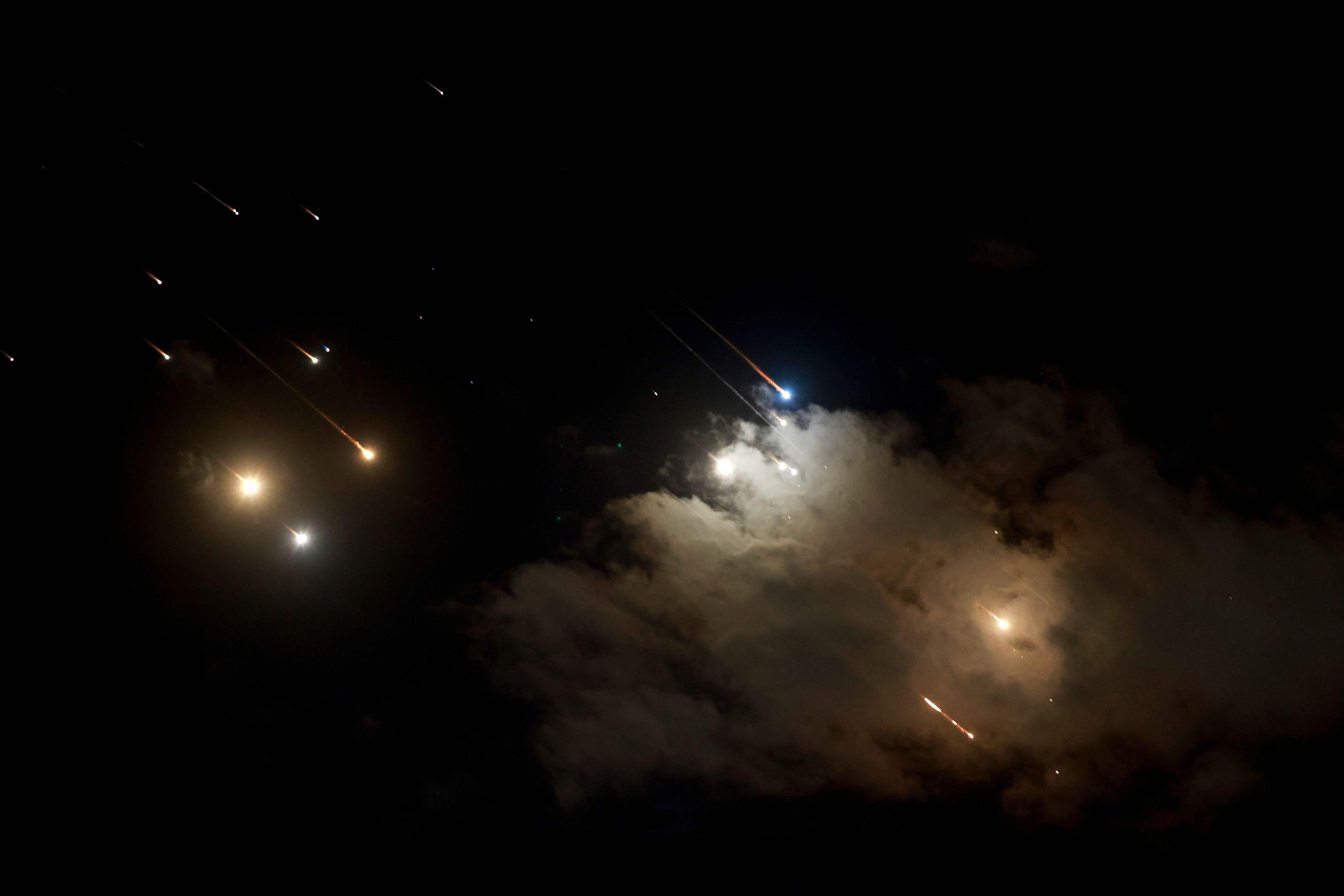
Iran has fired hundreds of ballistic missiles at Israel amid heightened tensions between two regional arch-rivals.
The attack started around 8.15 p.m. local time (1645GMT) on Tuesday. Iranian media said at least 400 missiles had been launched so far.
In a preliminary statement, the Islamic Revolutionary Guard Corps (IRCG) said the attack was in response to the assassination of Hamas leader Ismail Haniyeh, Hezbollah leader Hassan Nasrallah, and IRGC Commander Abbas Nilforoshan.
Israel said it intercepted many of the missiles, and officials in Washington said U.S. destroyers assisted in Israel's defense. Iran said most of its missiles hit their targets.
The missile attack came after Israel said ground troops crossed into Lebanon overnight, launching what the military described as a limited operation to root out Hezbollah fighters and infrastructure.
Hezbollah, meanwhile, said it saw no sign of Israeli forces and that its troops were ready to confront them.
Iran’s President Masoud Pezeshkian said missile strikes on Israel are based on the country’s “legitimate self-defense rights”, noting that a “decisive response” was given to the “aggression” of Israel.
In a statement posted on X on Tuesday, Pezeshkian said the action was “in defense of the interests and citizens of Iran.”
Iran's ballistic missile attack on Israel "appears to have been defeated and ineffective," US National Security Advisor Jake Sullivan said Tuesday.
Sullivan told reporters that Iran fired nearly 200 ballistic missiles at Israel, which the US worked with Israeli forces to intercept, including by using Navy destroyer warships to fire interceptors "to shoot down inbound missiles."
"We are still working with the IDF and the authorities in Israel to assess the impact of the attack. But at this time, and I stress at this time, we do not know of any deaths in Israel," Sullivan said at the White House, adding that initial reports indicate a Palestinian was killed in Jericho.
UN Secretary-General Antonio Guterres denounced the escalation of tensions Tuesday in the Middle East, especially between Iran and Israel.
"I condemn the broadening of the Middle East conflict with escalation after escalation," Guterres wrote on X.
Urging that the escalations "must stop," Guterres said, "We absolutely need a ceasefire."